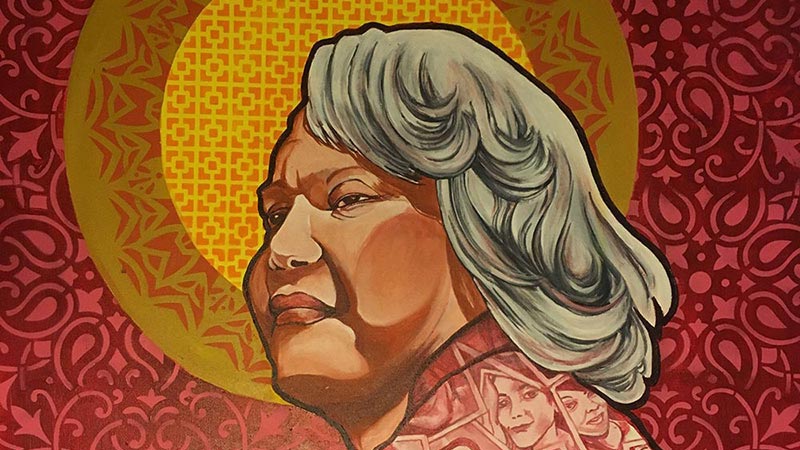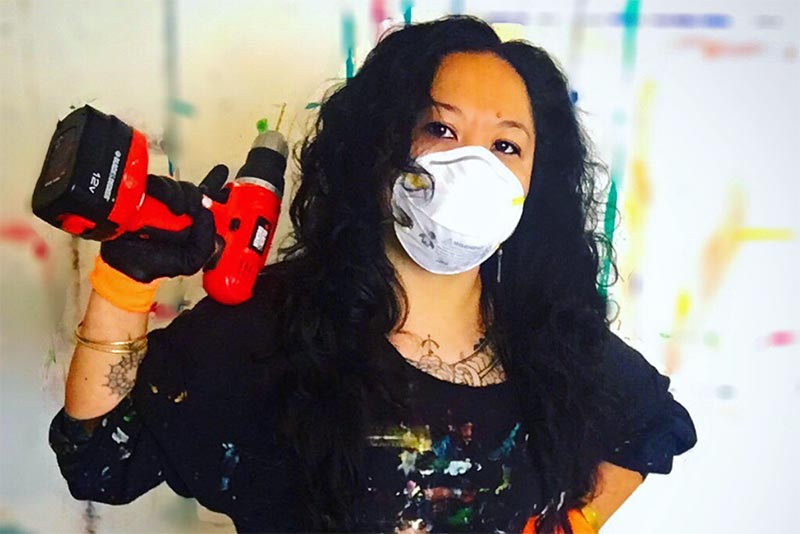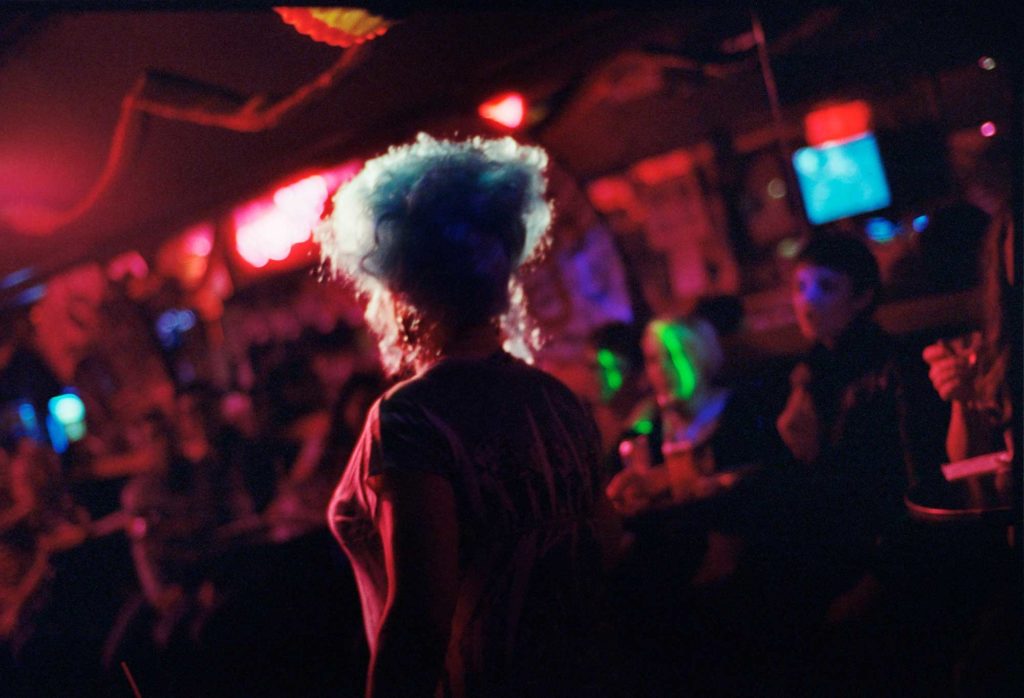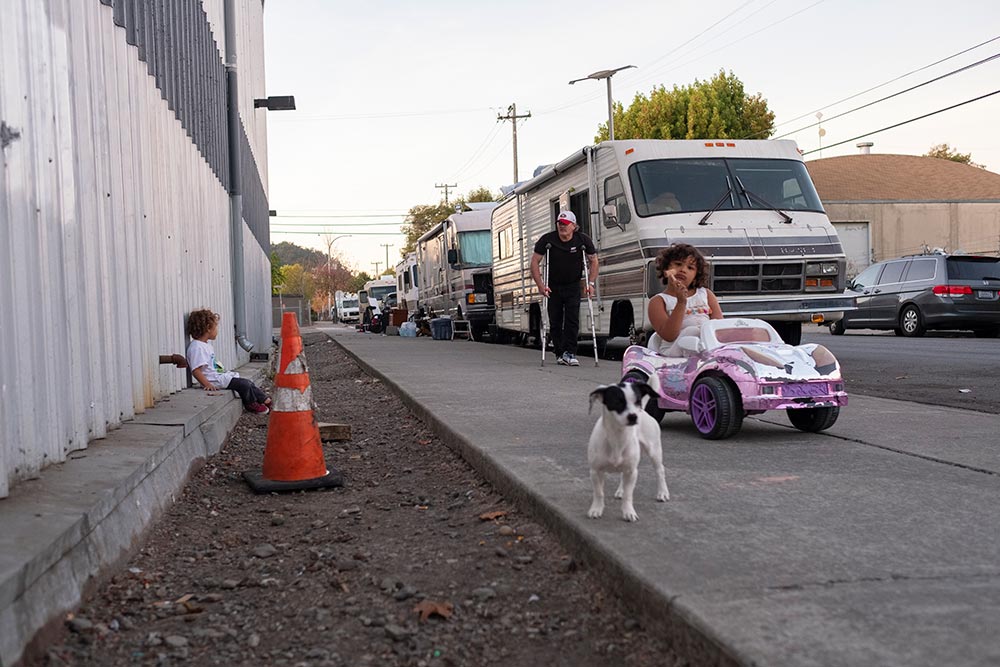Wed December 24th Closed
9 Questions with Cece Carpio

As part of the digital experience Come to Your Census: Who Counts in America? presented under the umbrella of the Art+Action Coalition’s COME TO YOUR CENSUS campaign—powered by San Francisco’s Office of Civic Engagement & Immigrant Affairs (OCEIA)—YBCA and Art+Action have asked participating artists to respond to prompts around activism, community-building, and art, in the format of the Census’ 9 questions.
From the Philippines and back in the Bay Area, Cece Carpio paints people and places. Through her work she tells stories of immigration, ancestry and resilience. She can often be found collaborating with her collective, Trust Your Struggle, teaching, and traveling around the world in pursuit of the perfect wall.
For Come to Your Census: Who Counts in America? YBCA commissioned Carpio to create four new works for her Actual Enumeration series. This series depict figures from various communities who are not currently represented in the 2020 Census. Their presence serves as an acknowledgment that these people and their communities have greatly contributed to the United States, despite their absence from the Census categories.
What is your first experience in seeing/feeling the impact of art + activism?
Art and activism has always been intertwined in my practice. There isn’t a start date, the two were never separated. To me, art has always been a form of communication–to relay messages, tell our stories, and exchange ideas. I’ve been in places where I didn’t speak the same language as the community and been in communities where folks were illiterate–so we spoke with body languages, hands signals, and images. Moments like these are when I feel activism takes place, when we can listen to each other, and have a shared experience. We can understand where each other is coming from, allowing us to come together and fight the same fight.
What makes you feel a deep sense of belonging?
My communities in the different parts of the world. My people, working class communities of color fighting everyday for a more dignified existence. Our very existence, our survival, our flourishment and achievements are, and have always been, political.
What do you wish for your community?
A more dignified existence. That we all can have access to health, shelter, and economic protection, and those things are seen as basic human rights for us all. Recognition of our contributions. And to live in a world where the values and morals of equity is not foreign, but rather understood and practiced by everyone.

Who are the most vulnerable members of your community and how do you support them?
This question is a bit tough, because hierarchies of vulnerability changes depending on where we are, and who and what we are surrounded by. The women, the children, the disabled, and the undocumented all lack a certain amount of access to resources in this nation. As a muralist/artist/cultural worker, I support with the means I know how, by reclaiming public spaces and creating larger-than-life images to tell our collective stories of resilience. Within communities, I am a visual storyteller, recording and sharing our lives and visions of the world we want to live in. I paint to evoke the power of our imagination, to uplift our communities in hope of creating a better world in beauty and in justice.
What’s at stake in contemporary art when creating work that pertains to social and political reform?
I supposed I might be coming from a different perspective, because I don’t see anything at stake for the contemporary art world when artists advocate for social and political change. I was raised in a community of artists who were taught that our art is to be used as a tool to make those changes. Our whole purpose of doing the work that we do is to uplift our voices and our communities, so that maybe, somehow, or at the very least, we can feel free.
What are some strategies for breaking through political disengagement, distrust or distraction?
Having an understanding of similar collective goals based on a practice and belief that our purpose is to achieve liberation for us all.
What would push you past your fear?
That my work (art) can contribute to something bigger than myself. That it can support universal liberation and justice.
What is at stake for you and your community by taking the census?
What would the information be used for? Knowing the history of the census, I recognize that it has been used to identify populations to separate and cage them. At the same time, I also see the benefit of taking the census, to be accounted for and secure the promised distribution of resources. There are still remnants of stigma in taking the census within certain communities, I acknowledge that, but I still do encourage our communities to take the census, and/or make their own decisions with the knowledge of both its history and benefits.
What, if anything, is worth fighting for?
Our peoples, our communities, our lives, and our liberation.



